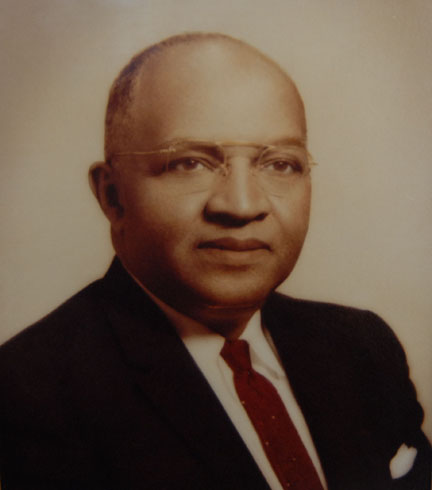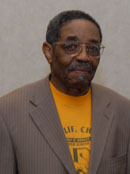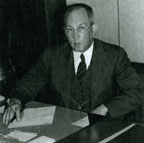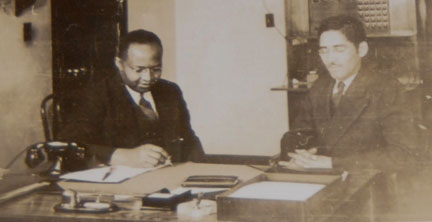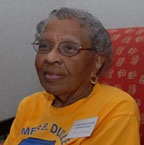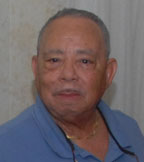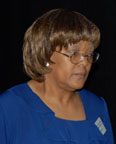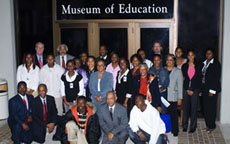

Educational Leadership:
“The achievements of Greenboro’s black schools reflected in large part the genius of John Tarpley.” William H. Chafe, Civilities and Civil Rights: Greensboro, North Carolina, and the Black Struggle for Freedom |
|||||||||||||||||||||||
|
|||||||||||||||||||||||
|
|||||||||||||||||||||||
The Secondary School Study was establishing new roles for educational administrators as had occurred during the 1930s with the Progressive Education Association’s Eight Year Study. Democratic ideals served to define the experimental efforts of schools; however, the venue for this new conception of leadership maintained traditional ideals of authoritarian rule by administrators and teachers. The principal was expected to provide direction and instill confidence while also fostering a sense of curricular flexibility and extending instructional authority among the staff. Legendary principal John Allen Tarpley (1902-1992) served Dudley High School from 1932-1965. Described by Dudley alumni as a “big Texan,” he graduated from Wiley College in 1922 (with his wife, Lucille Sanford Tarpley, having graduated two years before). Matthew W. Dogan, President of Wiley College, would describe him as being “actively connected with most progressive movements confronting the public schools of his state.” Tarpley subsequently received an honorary doctorate from Wiley College. |
|||||||||||||||||||||||
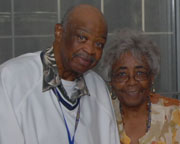 John and Helen Smith |
|||||||||||||||||||||||
“Dr. Tarpley wanted you to be respectful and, in return, he treated us with respect.” John Smith |
|||||||||||||||||||||||
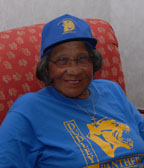 Almetha Clark Gilbert |
|||||||||||||||||||||||
|
|||||||||||||||||||||||
John Tarpley came to Greensboro in 1922 to teach biology and Latin at Bennett College. He received a master’s degree from the University of Michigan, circa 1939, with reports of additional graduate study at Ohio State University under the tutelage, one would assume, of Harold Alberty, a national authority of core curriculum and the doctoral advisor of other high school principals who participated in the Secondary School Study. Interestingly, while Tarpley was “the” disciplinarian at Dudley High School, a community leader in Greensboro, and a guiding educational leader in North Carolina, he seems conspicuously absent from many of the Secondary School Study meetings and workshops. |
|||||||||||||||||||||||
|
|||||||||||||||||||||||
William Skelton notes, “Dr. Tarpley was one of the kindest men I have ever known. He was strict and his rules were law, but he would help us in any way he could. He was a principal who supported all of his teachers: if there was a problem, he would take care of it.” Articulating and achieving such a balance of strong leadership with diffused authority proved difficult for many of the school directors, and the careers of each “life-long principal” of the Secondary School Study warrant further study. |
|||||||||||||||||||||||
“Dr. Tarpley didn’t just sit in the office and then march up and down the halls. He would go to the Grove and would talk to the students. Actually, he was talking with students.” Lois C. Millings |
|
||||||||||||||||||||||
|
|
||||||||||||||||||||||
|
“ ‘Big John’ Tarpley, as he was affectionately known, was a big man and a big personality with a commanding presence. Dr. Tarpley WAS the school. He was very strict and had no tolerance for anything other than students doing their best. He set the rules, and we accepted that. Not everyone liked those rules, but we respected him.” Brenda D. James |
||||||||||||||||||||||

an institutional member of the International Coalition of Sites of Conscience
Museumofed@gmail.com

